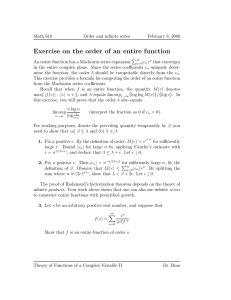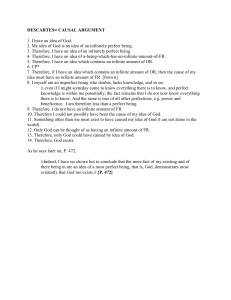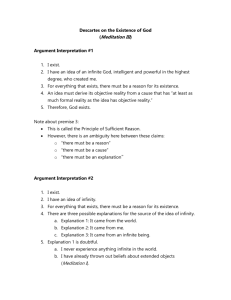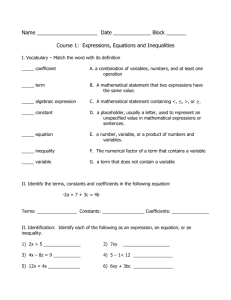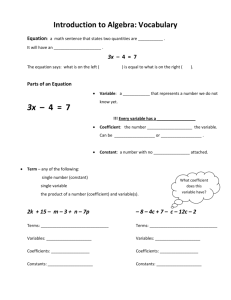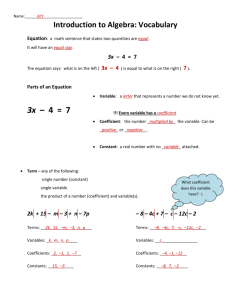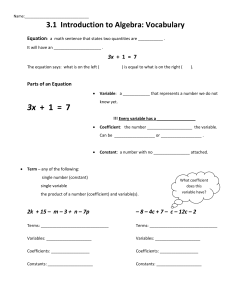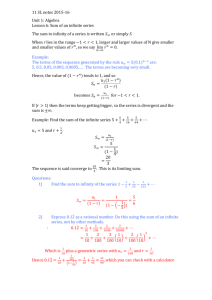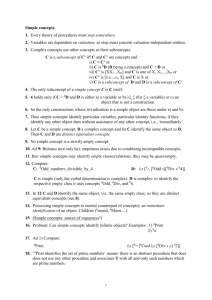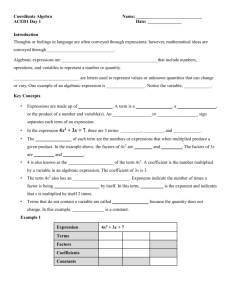One, No, Infinite Solutions: Algebra Worksheet
advertisement
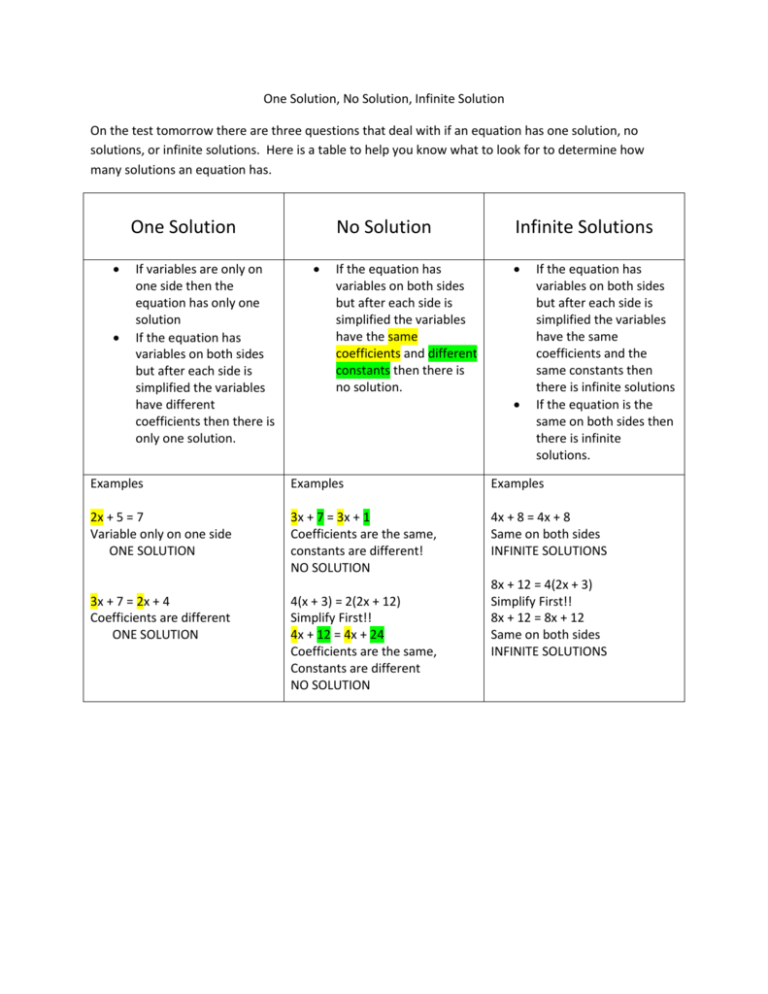
One Solution, No Solution, Infinite Solution On the test tomorrow there are three questions that deal with if an equation has one solution, no solutions, or infinite solutions. Here is a table to help you know what to look for to determine how many solutions an equation has. One Solution If variables are only on one side then the equation has only one solution If the equation has variables on both sides but after each side is simplified the variables have different coefficients then there is only one solution. No Solution Infinite Solutions If the equation has variables on both sides but after each side is simplified the variables have the same coefficients and different constants then there is no solution. If the equation has variables on both sides but after each side is simplified the variables have the same coefficients and the same constants then there is infinite solutions If the equation is the same on both sides then there is infinite solutions. Examples Examples Examples 2x + 5 = 7 Variable only on one side ONE SOLUTION 3x + 7 = 3x + 1 Coefficients are the same, constants are different! NO SOLUTION 4x + 8 = 4x + 8 Same on both sides INFINITE SOLUTIONS 3x + 7 = 2x + 4 Coefficients are different ONE SOLUTION 4(x + 3) = 2(2x + 12) Simplify First!! 4x + 12 = 4x + 24 Coefficients are the same, Constants are different NO SOLUTION 8x + 12 = 4(2x + 3) Simplify First!! 8x + 12 = 8x + 12 Same on both sides INFINITE SOLUTIONS
